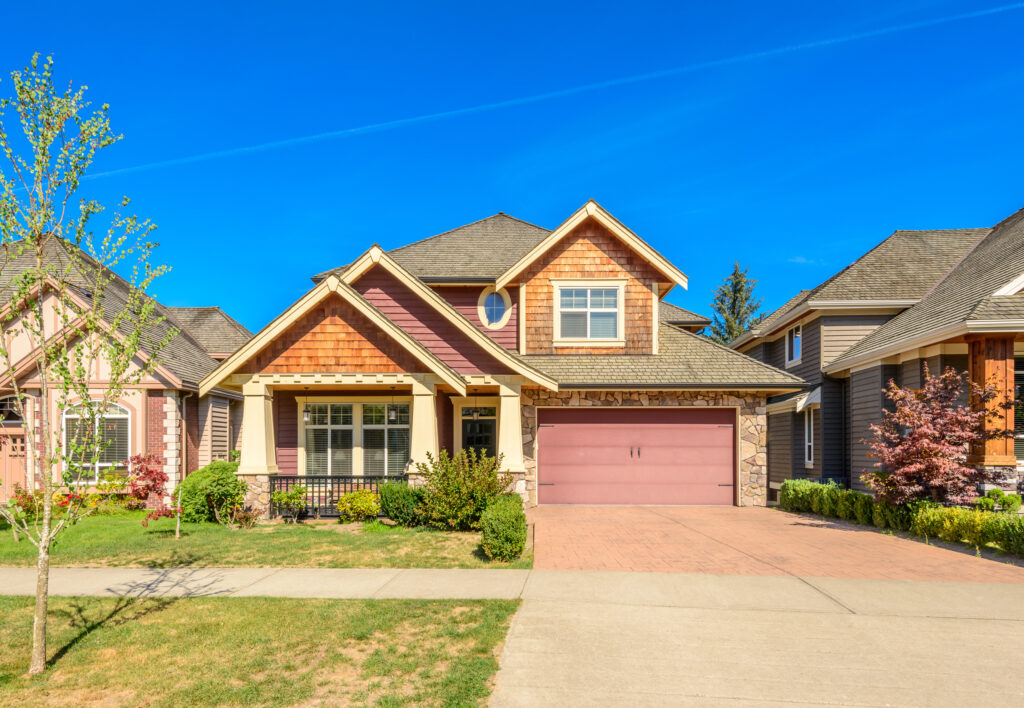What is an Adult Care Home?
Adult care homes may be ideal for a senior who can no longer manage their health and safety in their own home, and may need care. Family care homes are an excellent housing option for aging adults because they offer private residencies in a home-like environment. Some states may use the term Adult Foster Home or Board & Care Home. These homes are not nursing homes.
Adult Family Care Home
These are private residences that provides a home-like setting, and typically care for 5-10 residents, depending on the state licensing requirements. The Care Home, or adult foster home provider will typically provide meals, housekeeping, and limited activities. Unlike a nursing home, residents may require very light assistance or may be dependent with several care needs; it is best to ask individual locations for their specific policies and licenses. Caregivers may perform several functions: personal hygiene and mobility and eating and dressing and toileting and behavior management. There are other excellent options aside from a nursing home.

Common terms that differentiate levels and types of senior living:
- Continuing Care Retirement Communities (CCRCs)- typically include independent living, assisted living, residential care and skilled nursing services all on one campus.
- Independent Living Communities – provide residents a setting without the burden of home ownership. Residents commonly live in fully equipped private apartments or cottages from a studio to large two-bedroom units.
- Care Home or Adult Family Care Home- are private residences in a home-like setting that provide care services to a smaller more limited number of residents (typically 5-12 residents, depending on each state’s regulations).
- Assisted Living- provides housing and supportive care in a community setting, but the residents do not require 24-hour nursing care.
- Memory Care- a care setting for residents with memory loss or confusion. The community typically has a “secured” entry for residents that may wander. This care can be provided in different care settings depending on the state licensing requirements.
- Skilled Nursing is state licensed to provide a safe, therapeutic environment for people who require rehabilitative care 24 hours a day.
Definitions and other terms
These homes are found in normal residential neighborhoods. You may drive past an adult foster home each day on your commute. As you look for adult care homes in your community, it is good to know the other terms/names you may hear:
- Care Home
- Adult family home
- Board and care home
- Adult foster home
- Nursing Home (although this is an outdated and not an accurate term for this level of care)
What care and support does an Adult Care Home provide?
Similar to a nursing home, residents receive 24-hour care all in a single-family environment. And in addition each home has an operator who may employ additional caregivers to support with the care of residents. They looks very similar to a single family home and the residences are licensed to house a smaller number of adults as opposed to larger assisted living communities. So they make ideal homes for loved ones who require individualized care while allowing residents the preferences and choices to honor their independence. And for safety operators must be licensed in their state and participate in on-going training. Staff must have hands-on experience providing care for the population they intend to serve, as well as on-going training.

Caregivers may assist with activities of daily living and additional care needs, including:
- Personal care
- Housekeeping
- Activities
- Group meals
- Mobility
- Behavior management
- Eating
- Dressing
- Toileting
- Personal hygiene
- Cognitive support and redirection
Your loved one may require minimum assistance, in which case an adult foster home may be ideal, or they may be much more dependent on care and services, where a nursing home may be a better fit. The comfort and peace of mind of your loved one is the most important thing so ask each location you look at for their specific licenses and policies.
Federal Licensing and Regulations
Licensing and policies vary state by state. Most states demand a care assessment and care plan for residents in an adult care home. As each state is licensed uniquely depending on their specific requirements, we can look at specific examples to give you a better view of the procedures.
For example, in Oregon, an adult family home is licensed to serve:
- Older adults & people with disabilities.
- Developmental disabilities.
- Intellectual disabilities.
- Mental health and addiction.
Operators must pass an abuse and criminal history background check. They must have the equivalent of one full year providing care for adults in the population for which they will care for. A current Oregon Certified Nursing Assistant License counts toward 6 months of a class one license. In addition, they must complete the eight-hour orientation, basic training and pass the qualifying exam.
Texas laws and regulations are different:
In Texas, an adult foster may care for no more than three individuals. In order for a care provider to care for aging people in Texas, the individual must obtain a Texas Department of Aging and Disability Services assisted license Type C.
Ask about licensing in the adult care homes you research. This may seem tedious, but the extra precautions and inquiries will keep you informed and knowledgeable of the possibilities as you make your decision.
What are the costs of an Adult Care Home?
It becomes common knowledge as you search through care options for your aging loved one, the large discrepancies in costs. Adult care homes are no exception. The good news is adult care homes are generally half the cost of a nursing home and adult care homes can be less expensive than assisted living. But they will not have the same amenities and variety of activities.
- Costs fluctuate depending on your geographical location.
- Each state has varying costs for adult care homes.
- Expect to pay between $1,700 per month to $4,000 per month, on average.
- Costs are affected by the care requirements of your loved one.
Typically, the cost for senior living and care is less expensive in the southern regions of the country as well as some of the mid-western states. If you are looking for care in the northeast or on the west coast, expect to potentially pay much more.
How to pay for an adult care home

You want to consider your payment options for assisted living, memory care, and care homes. For these services, Medicare is NOT an option for payment.
The most common payment for these services would be out of pocket Private Pay and assessing a combination of retirement funds, personal savings, and pension payments.
Medicaid can also be an option, be sure to see if you or a loved one qualifies.
Long-Term Care insurance is also a possible option in cases of chronic conditions, be sure to see if you or a loved one qualifies.
For our Veterans and spouses of veterans, be sure to assess Veteran Aid and your eligibility for these benefits.
Medicare – NO:
- Medicare does NOT pay for Assisted Living.
- People 65 years and older and individuals with end stage renal disease are eligible for Medicare benefits, no matter their income.
- Coverage is meant for people in need of short-term care.
Private pay – YES:
- Many families pay for assisted living with private funds.
- Private pay can be a combination of retirement funds, personal savings, and pension payments.
- Family members may contribute funds to pay for assisted living or other senior housing and care.
Medicaid – MAYBE:
- Medicaid provides health coverage to millions of Americans. Eligible participants include: low-income adults, elderly adults and people with disabilities.
- Medicaid is administered by state, according to federal requirements. The program is funded jointly by each state and the federal government.
- Every state has their own individual Medicaid assistance program.
- National guidelines are in place do decipher how states must spend Medicaid money, but with allowances toward the guidelines.
- The state determines what levels of care will be covered by Medicaid, who is eligible, and how much the state will reimburse the care community.
- If you are unsure whether you qualify for Medicaid, you should apply. You may be eligible depending on your household income, family size, age, disability and other factors.
Long-term Care Insurance – MAYBE:
Long term care insurance is a great way to pay for assisted living, and planning ahead is important when considering how to pay for senior housing and care. Nearly 75% of people over the age of 65 will require long-term care and services at some point. Buying into long-term care insurance when a person is in their 50s and 60s is the most common time to do so.
- Long-term care insurance helps cover the costs of chronic medical conditions.
- Individuals and couples with the ability to pay into long-term care insurance have the advantage of a head start in allocating funds for senior care.
Veteran Aid and Assistance – MAYBE:
This benefit is available to some military veterans and surviving spouses who live in an assisted living community and those who have in-home care.
- There are specific guidelines, but a veteran may qualify for as much as $2,050 each month.
- A veteran with a sick spouse may be eligible for $1,600 per month.
- If a veteran has passed, their surviving spouse can qualify for $1,300 per month.

Resources and links related to Senior Living and Care
Eldercare Locator is a nationwide service that connects older Americans and their caregivers with trustworthy local support resources. Connect with services such as meals, home care or transportation, or a caregiver education or respite from caregiving responsibilities. The Eldercare Locator is a public service of the Administration on Aging (AoA), an agency of the U.S. Administration for Community Living.
Medicare provides a search feature to find & compare providers near you, most senior housing and care providers are included on CareAvailability.com. Find & compare plans in your area. Determine if you qualify for premium savings
Medicaid offers information on how to apply for Medicaid, eligibility criteria, links to local state offices, and additional resources.
The Alzheimer’s Association is the leading voluntary health organization in Alzheimer’s care, support and research. Whether you are living with Alzheimer’s or caring for someone with the disease, information and resources are available.
Questions to Ask
Finding a senior living community can be overwhelming. Here are some tips on things to be observant of:
- Make sure the facility is clean and well maintained. You can tell a lot about the operation by noting what is clean and maintained. Are doorknobs loose or damaged? Do you see any frayed carpet or trip hazards?
- Visit during lunch hour to observe what the residents are eating. Ask questions about the nutrition program. Is there diversity in meals, healthy fruits and vegetables served at all meals, drink options?
- Speak to residents and/or family members to learn their perspective.
- Ask about staff and resident engagement. Get a feel for how staff interact with residents.
- Ask about the life enrichment programs. Activities are crucial when it comes to quality of life and play a key role in care for older adults.
- And finally (along with a plethora of more things to consider), get to know the leadership in the building. If you feel good around the Executive Director, Head Nurse, Lead Activities Director and even the Chef or Janitor, it is a good sign you can trust them with the care of your loved one.
Search other states for Adult Care Homes
Not finding what you’re looking for? Take a look below.
